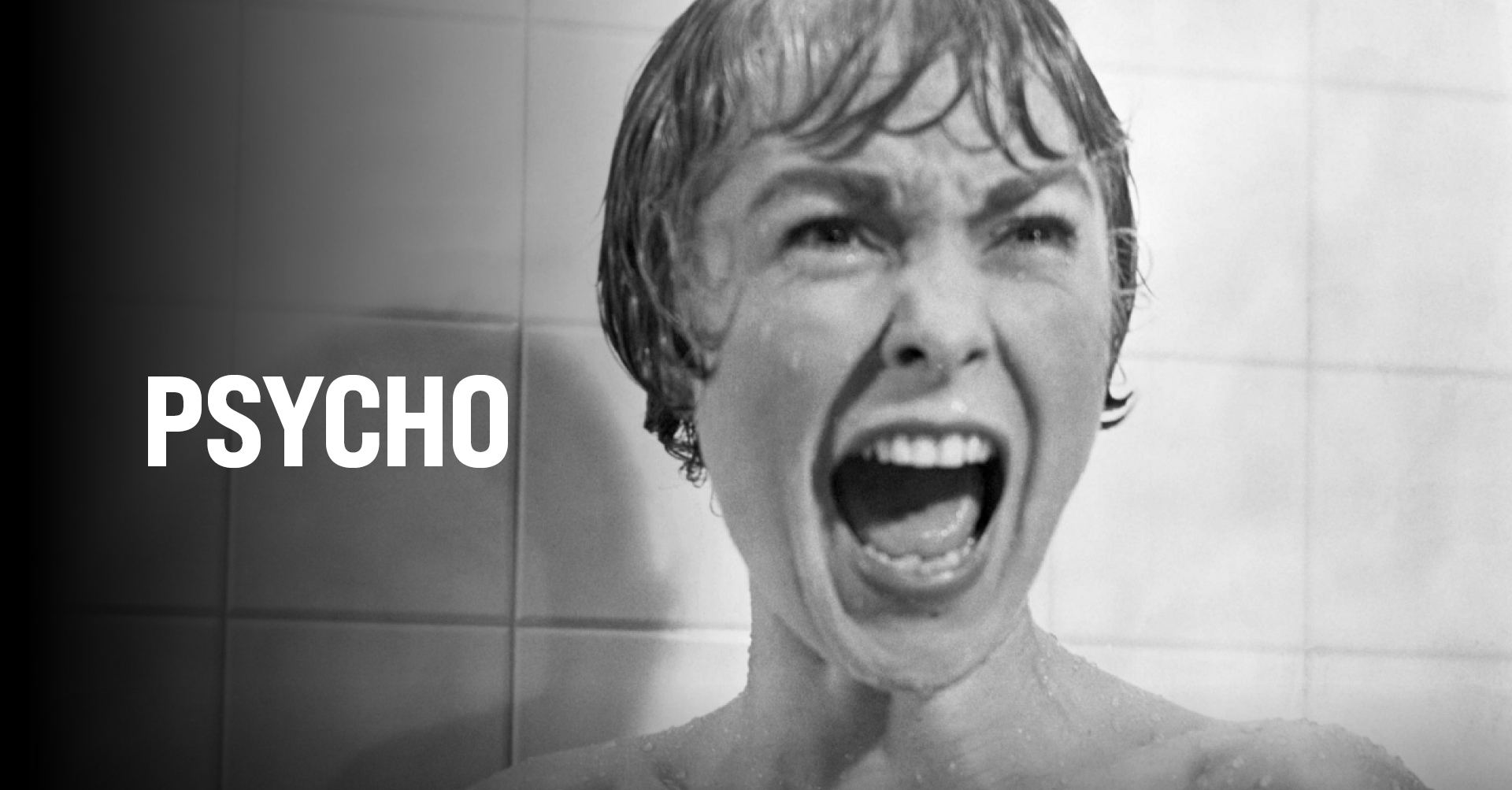
Released in 1960, “Psycho” is a critically acclaimed psychological thriller directed by Alfred Hitchcock. This iconic film, based on a novel of the same name by Robert Bloch, has captivated audiences for over half a century with its suspenseful storyline, unforgettable characters, and groundbreaking cinematic techniques. “Psycho” tells the chilling story of Norman Bates, a motel owner with a deeply disturbed personality. The film’s innovative use of suspense, shocking plot twists, and psychological exploration has earned it a place in the annals of film history. In this article, we will dive into 47 interesting facts about “Psycho” that every movie enthusiast should know. From behind-the-scenes trivia to the film’s cultural impact, join us as we unravel the secrets behind this timeless classic.
Key Takeaways:
- “Psycho” is a classic horror film directed by Alfred Hitchcock, known for its iconic shower scene and groundbreaking storytelling that continues to captivate audiences over 60 years later.
- The film’s impact on the horror genre, its unforgettable characters, and timeless appeal make “Psycho” a must-watch for lovers of suspenseful and psychological thrillers.
Psycho was directed by Alfred Hitchcock.
Psycho is a classic psychological horror film directed by the legendary Alfred Hitchcock. Known for his suspenseful filmmaking style, Hitchcock created a masterpiece that still captivates audiences today.
It was released in 1960.
Psycho was released on June 16, 1960, and quickly became a box office success. It has since gained cult status and is considered a must-watch for lovers of the horror genre.
The movie is based on a novel.
Psycho is based on the novel of the same name written by Robert Bloch. The novel was loosely inspired by the crimes of real-life serial killer Ed Gein.
The iconic shower scene.
One of the most famous scenes in film history is the shower scene in Psycho. It is known for its revolutionary editing techniques and chilling portrayal of violence.
The movie’s score became legendary.
The score for Psycho was composed by Bernard Herrmann and is considered one of the most iconic scores in film history. The screeching violin sound during the shower scene has become synonymous with suspense and terror.
Hitchcock financed the film himself.
In order to have complete creative control, Alfred Hitchcock financed the production of Psycho himself. This decision paid off as the film became a major success and cemented Hitchcock’s reputation as a master filmmaker.
The main character is Marion Crane.
Marion Crane, played by Janet Leigh, is the film’s protagonist. Her decision to steal money and run away leads her to the Bates Motel, where her fate takes a sinister turn.
The Bates Motel.
The Bates Motel, where much of the film takes place, is a creepy and isolated motel run by Norman Bates and his mother. The motel has become an iconic location in horror cinema.
The character of Norman Bates.
Norman Bates, played by Anthony Perkins, is one of the most memorable characters in film history. He is a complex and psychologically disturbed motel owner with a troubled relationship with his mother.
The movie was groundbreaking for its time.
Psycho pushed the boundaries of what was acceptable in mainstream cinema at the time. It featured shocking violence and a twisted storyline that captivated audiences and broke new ground in the genre.
Hitchcock’s cameo.
Alfred Hitchcock, known for his cameos in his own films, appears briefly in a scene outside Marion Crane’s office.
The film was initially met with mixed reviews.
Upon its release, Psycho received mixed reviews from critics. However, over time, it has been reevaluated and is now considered one of the greatest films ever made.
The use of chocolate syrup for blood.
Due to the restrictions of depicting blood in black and white films, Hitchcock used chocolate syrup for the famous shower scene to create a more dramatic effect.
The movie was a financial success.
Psycho was made on a relatively low budget of $800,000 but went on to gross over $32 million at the box office, making it a huge financial success.
Hitchcock faced criticism for the film’s content.
Alfred Hitchcock faced backlash from some critics and censors for the explicit nature of Psycho, but he refused to make any changes. His uncompromising vision ultimately paid off.
Psycho was nominated for four Academy Awards.
The film received four Academy Award nominations, including Best Director for Alfred Hitchcock and Best Supporting Actress for Janet Leigh. However, it did not win any of the awards.
The twist ending.
Psycho is known for its shocking twist ending, revealing the true identity of the killer. This twist has become synonymous with the film and is often referenced in popular culture.
The influence on the horror genre.
Psycho has had a profound influence on the horror genre, inspiring countless filmmakers and shaping the way psychological thrillers and horror films are made.
The movie’s impact on audiences.
Psycho had a profound impact on audiences at the time of its release. It was praised for its ability to induce fear and suspense, leaving audiences on the edge of their seats.
The legacy of Psycho.
Psycho’s legacy lives on more than 60 years after its release. It continues to be studied and analyzed by film scholars and is included in many lists of the greatest films of all time.
The iconic shower scene music.
The screeching violin sound from the shower scene has become one of the most recognizable pieces of music in film history.
The psychological impact of the film.
Psycho delves deep into the psychology of its characters, exploring themes of identity, voyeurism, and repressed desires, leaving a lasting impression on viewers.
The film’s use of suspense.
Hitchcock is known for his mastery of suspense, and Psycho is a prime example of his filmmaking prowess. The tension builds gradually throughout the film, keeping audiences on the edge of their seats.
The social commentary in Psycho.
Psycho offers social commentary on various themes, including gender roles, mental illness, and the dark underbelly of suburban America.
Psycho’s impact on pop culture.
Psycho has had a significant impact on pop culture, with references and parodies appearing in various forms of media, from television shows to music videos.
The memorable characters.
In addition to Norman Bates and Marion Crane, Psycho features a cast of unforgettable characters, including the suspicious detective Arbogast and Marion’s sister Lila.
The use of black and white cinematography.
Hitchcock decided to film Psycho in black and white, which adds to the film’s atmospheric and moody aesthetic.
The long-lasting fame of Psycho.
Psycho’s widespread popularity has ensured its place in cinematic history. It remains a favorite among critics and audiences alike and is often discussed as a benchmark for suspenseful filmmaking.
The movie’s enduring popularity.
Despite being released over six decades ago, Psycho continues to attract new generations of fans who appreciate its timeless storytelling and expert craftsmanship.
The influence on modern horror.
Psycho paved the way for modern horror films, inspiring directors to push boundaries and experiment with unconventional storytelling techniques.
The memorable locations.
In addition to the Bates Motel, Psycho features other memorable locations, such as the eerie Bates house and the iconic staircase where the murder occurs.
The use of tight framing.
Hitchcock used tight framing and close-ups to increase the feeling of claustrophobia and add to the film’s suspenseful atmosphere.
The impact on the slasher genre.
Psycho is often credited with laying the foundation for the slasher genre, with its emphasis on the psychological motivations of the killer and its realistic depiction of violence.
The Psycho franchise.
Psycho spawned several sequels, prequels, and remakes, although none have achieved the same level of critical acclaim and cultural significance as the original film.
The symbolism in Psycho.
Hitchcock expertly uses symbolism throughout the film, from the stuffed birds in Norman’s parlor to the taxidermy animals that foreshadow the dark secrets of the Bates Motel.
The groundbreaking marketing campaign.
Hitchcock implemented a unique marketing campaign for Psycho, in which he insisted that viewers arrive at the theater at the start of the film and not be allowed to enter once it had begun. This heightened the anticipation and added to the film’s mystique.
The ambiguous ending.
The ending of Psycho leaves much open to interpretation, allowing viewers to draw their own conclusions about the characters and their fates.
The influence on other Hitchcock films.
Psycho is considered one of the defining films of Alfred Hitchcock’s career and had a profound influence on his later works, particularly in terms of its exploration of psychological themes.
The film’s critical reassessment.
Although initially met with mixed reviews, Psycho has undergone a critical reassessment over the years and is now widely regarded as a cinematic masterpiece.
The portrayal of mental illness.
Psycho touches on the theme of mental illness, delving into the complex psyche of its characters with empathy and depth.
The tension-filled soundtrack.
Bernard Herrmann’s iconic soundtrack for Psycho heightens the tension and adds to the overall sense of unease throughout the film.
The unpredictability of the storyline.
Psycho keeps viewers guessing until the very end, as the plot takes unexpected twists and turns that keep audiences on the edge of their seats.
The cinematography techniques.
Hitchcock utilized innovative cinematography techniques in Psycho, including the use of wide-angle lenses and overhead shots to create a unique and unsettling visual experience.
The psychological depth of the characters.
The characters in Psycho are multidimensional and psychologically complex, adding layers of depth to the overall narrative.
The legacy of Marion Crane’s character.
Marion Crane’s character has become an iconic figure in film history, representing the vulnerability and consequences of one’s choices.
The film’s exploration of repressed desires.
Psycho delves into the theme of repressed desires, portraying the dangerous consequences that can arise when these desires are unleashed.
The timeless appeal of Psycho.
Even after all these years, Psycho remains a timeless classic that continues to fascinate audiences with its expert storytelling, unforgettable characters, and groundbreaking approach to horror.
Conclusion
In conclusion, “Psycho” is a groundbreaking and influential film that has left a lasting impact on the horror genre. Directed by Alfred Hitchcock, it is known for its innovative storytelling, dramatic twists, and iconic shower scene. With its psychological tension and suspense, “Psycho” has become a classic that continues to captivate and disturb audiences to this day. Whether you’re a fan of Hitchcock, a horror enthusiast, or simply appreciate masterful filmmaking, “Psycho” is a must-watch movie that showcases the brilliance of its director and the power of cinema.
FAQs
1. Who directed the movie “Psycho”?
Alfred Hitchcock directed the film “Psycho”.
2. What is the iconic shower scene in “Psycho”?
The iconic shower scene in “Psycho” is one of the most famous and influential scenes in cinema history. It depicts the brutal murder of the character Marion Crane in the Bates Motel.
3. When was “Psycho” released?
Psycho” was released in 1960.
4. Is “Psycho” based on a true story?
No, “Psycho” is not based on a true story. It is a work of fiction inspired by the novel of the same name written by Robert Bloch.
5. What makes “Psycho” a groundbreaking film?
Psycho” is considered groundbreaking for its unconventional narrative structure, shocking plot twists, and exploration of themes such as voyeurism and the duality of human nature.
6. Has “Psycho” won any awards?
Yes, “Psycho” received four Academy Award nominations and won the Best Supporting Actress award for Janet Leigh’s performance.
7. Can “Psycho” be considered a horror film?
Yes, “Psycho” is often categorized as a horror film due to its suspenseful atmosphere, psychological elements, and intense scenes.
8. What is the significance of the score in “Psycho”?
The score composed by Bernard Herrmann is highly regarded and plays a crucial role in creating tension and enhancing the film’s suspenseful moments, especially during the iconic shower scene.
Psycho's enduring legacy continues captivating audiences, leaving an indelible mark on horror cinema. Hitchcock's masterful direction, combined with unforgettable performances, created a timeless classic still studied and celebrated today. Delving deeper into the film's production and impact reveals even more intriguing aspects waiting to be explored. From the notorious shower scene to the complex character of Norman Bates, Psycho offers a wealth of fascinating details sure to intrigue fans and newcomers alike. So why not take a closer look at the groundbreaking techniques and shocking twists that made this iconic thriller a true cinematic landmark?
Was this page helpful?
Our commitment to delivering trustworthy and engaging content is at the heart of what we do. Each fact on our site is contributed by real users like you, bringing a wealth of diverse insights and information. To ensure the highest standards of accuracy and reliability, our dedicated editors meticulously review each submission. This process guarantees that the facts we share are not only fascinating but also credible. Trust in our commitment to quality and authenticity as you explore and learn with us.


